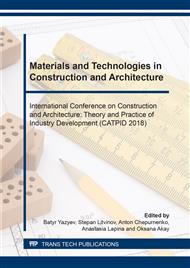p.745
p.750
p.754
p.759
p.765
p.770
p.776
p.780
p.785
Postmodern and Social Problems of Cities
Abstract:
Today it is possible to speak about a postmodern sociology. It is based on the number of provisions reflecting the general level of social and humanitarian knowledge as well the provisions formulated on the ground of the theoretical studies analysis on postmodernism performed. In its diverse manifestations the postmodern paradigm essentially turns into an independent cognitive and theoretical-ideological entity that influences mainly the development of the already existing sociological concepts and arises their new models or modalities. The mono-city is the element of the self-organising social being fabric that is the subject of social synergies. The cognitive and heuristic element of joining social, economic and political problems and the prospects for the development of single-tooth cities can be classified as "fractal". The social world consists of many things that are the processes of formation, and in fact are fractals. The degradation of modern Russia in the social, political and economic sense is an indicator of the destruction of single-tooth cities in the conditions of the modern socio-demographic structure within the framework of the postmodern "end of history".
Info:
Periodical:
Pages:
765-769
DOI:
Citation:
Online since:
September 2018
Keywords:
Price:
Сopyright:
© 2018 Trans Tech Publications Ltd. All Rights Reserved
Share:
Citation:


